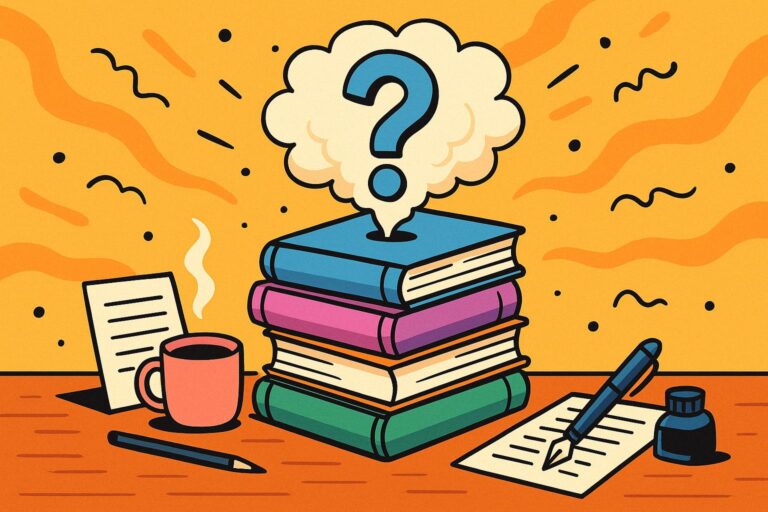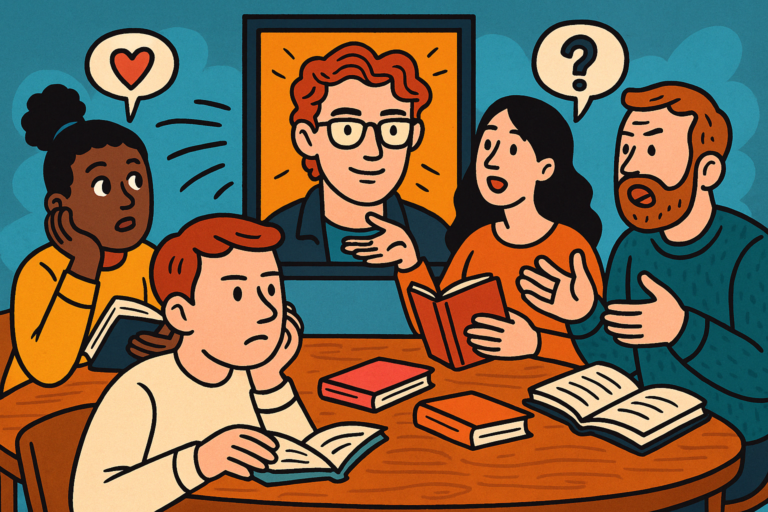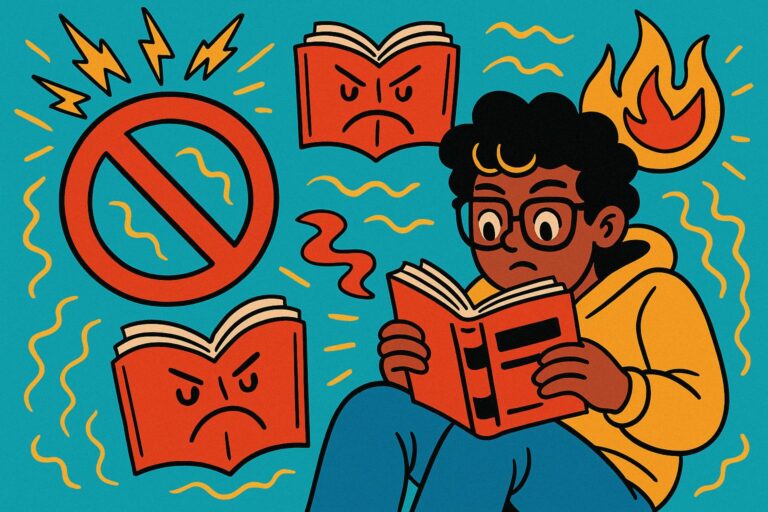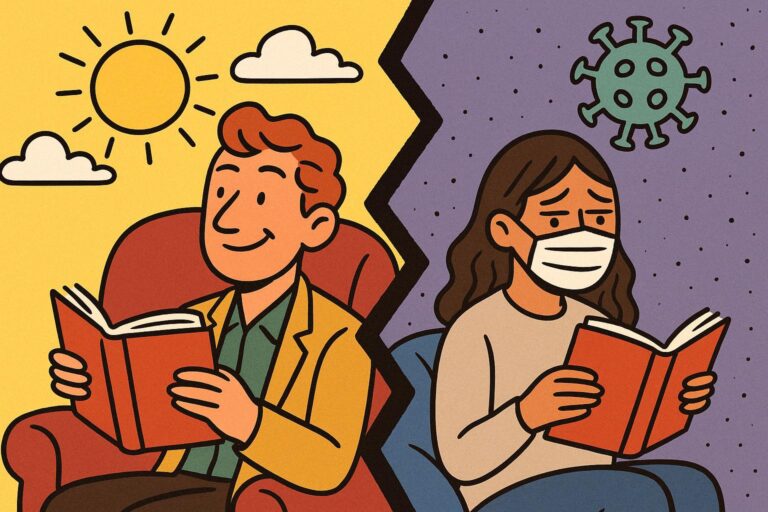Most Controversial Quirks Of Book Lovers
Quirks—those weird little habits—that divide even the most seasoned book lovers.
I’m not talking about casual stuff like loving libraries or hating spoilers. I mean the hot take territory: writing in margins, organizing shelves by color, speed-listening to audiobooks and still calling it “reading.” You know, the stuff that makes book Twitter implode.
What fascinated me during my research was how these quirks aren’t just preferences—they’re tied to identity, power, even cultural capital.
Like, how does annotating a book shift its value?
Why do some readers see genre fiction as “less than”?
These aren’t just petty squabbles; they open up big questions about how we define literary legitimacy.
So in this piece, I’m diving into the habits that stir the pot, backed by history, reader psychology, and more than a few Reddit rabbit holes. Some of it surprised me—I bet it’ll surprise you too.
Habits That Divide the Literature Lovers
1. Marginalia: Sacred Dialogue or Desecration?
Let’s start with a classic divide: marking up books. Some readers treat their books like sacred texts, where a single crease feels like a crime. Others?
They go full-on Talmudic scholar, with layers of underlining, color-coded tabs, and commentary in the margins.
What surprised me while digging into this was how historically accepted (and even celebrated) marginalia used to be.
Take Samuel Taylor Coleridge, for instance—his annotations were so dense that they’ve been published as standalone texts. In medieval scriptoria, glosses in the margins weren’t just tolerated; they were expected.
But somewhere along the line—especially with the rise of modern publishing and mass literacy—the idea of a pristine book became the ideal.
And now? Writing in a book sparks fierce debates. Some readers see it as a way of joining the conversation with the author; others see it as defacement.
But both sides are really asking: Whose voice belongs in the book, besides the author’s?
2. Genre Snobbery vs. Genre Devotion
This one hits a nerve. There’s a long-standing hierarchy in literary culture where certain genres—literary fiction, classics—get placed on a pedestal, while others like romance, fantasy, and sci-fi get dismissed as “guilty pleasures.”
But here’s what’s wild: genre fiction often outsells and out-influences literary fiction by a mile.
Romance alone accounted for nearly 20% of the U.S. fiction market last year, according to NPD BookScan. And yet, it’s still sidelined in academic syllabi and prize circuits.
What’s happening here is a clash between traditional gatekeeping and evolving reader culture.
Readers of genre fiction often build incredibly rich, participatory communities—fanfiction, deep-dive podcasts, conventions—and yet they’re sometimes treated like second-class citizens in the literary world. It’s not just about preference; it’s about who gets to define “good” literature.
Honestly, when a reader finds House of Earth and Blood more emotionally compelling than The Corrections, who’s to say they’re wrong?
3. Book Hoarding vs. Minimalist Collecting
Ah, the eternal bookshelf debate. Is it noble to own 800 unread books (aka practicing tsundoku), or is it better to keep a tight, intentional collection?
There’s a growing minimalist reading movement that treats book clutter as a sign of distraction or consumerism.
On the flip side, book hoarding is often framed as a badge of honor—proof of intellectual ambition or deep curiosity. But if you ask librarians or archivists, the real issue is preservation vs. access.
Is it better for books to live unread but preserved in someone’s private library, or to circulate constantly through public hands?
This one’s less about judgment and more about value systems.
Do we collect books for their utility, their symbolism, or something else entirely?
Personally?
I think it’s all part of the chaos that makes book culture so fascinating. But clearly, these habits aren’t just quirks—they’re mini-manifestos in disguise.
Quirks That Spark Bookish Feuds
1. Dog-Earing Pages Instead of Using Bookmarks
This is the OG controversy. Dog-earing—aka folding the corner of a page—is a practical choice for some and a mortal sin for others. For purists, it’s vandalism. For pragmatists, it’s just… functional.
I stumbled across a 2021 Reddit thread where someone admitted to dog-earing library books—and it was mass chaos. Like, 600+ comments of people debating whether that person should be “banned for life.”
What’s interesting is how this ties into the idea of a book’s lifespan. Is it a sacred object or a working document? Dog-earers tend to see books as lived-in tools, while bookmark users see them as collectibles or even art objects. It’s a deeper conversation about how we relate to physical books in a digital age.
2. Reading Multiple Books at Once vs. One at a Time
There are two kinds of readers: the faithful monogamists and the literary polyamorous. Reading more than one book at a time is a badge of honor for some—proof of intellectual dexterity. For others, it’s chaos. “How do you keep the characters straight?” they ask.
In a 2022 study published in Reading Research Quarterly, participants who read multiple books simultaneously reported higher satisfaction—but lower retention. So this isn’t just about preference; it’s about reading goals. Are you reading to savor or to conquer?
Also, let’s be real—there’s ego here. Some people like the flex of juggling a novel, a biography, and a dense theory book like it’s a casual Tuesday. But hey, if it works, it works.
3. Buying Books Faster Than You Can Read Them (Tsundoku Life)
Ah yes, the ever-growing “TBR” pile—that teetering stack of unread books that seems to grow exponentially faster than it shrinks. There’s actually a Japanese term for this: tsundoku. It loosely translates to “letting books pile up unread,” and yes, it has its own philosophical tradition behind it.
This one’s controversial because it raises questions about intentionality vs. impulse. Are you collecting books because you love the idea of reading them—or because the act of buying has replaced the act of reading?
I found some fascinating discourse in minimalist book forums (yes, that’s a thing) where people argue that unread books are a form of mental clutter. Meanwhile, others see their TBR as aspirational—“These books represent my future self.” It’s aspirational consumption at its nerdiest.
4. Preferring Movie Adaptations to the Books Themselves
You’d think this would be a joke, but I once heard someone say The Lord of the Rings movies were better than the books—in front of a Tolkien scholar. I’m still emotionally recovering.
This one cuts deep because it touches on authorship, interpretation, and narrative control. Some book lovers see adaptations as derivative by default. Others appreciate how a good film or show can distill and elevate certain elements (looking at you, Normal People).
Also, some people just don’t like reading dense prose. And that’s valid! But if you say it too loudly in some circles, prepare for a lecture on the sanctity of the written word.
5. Rewriting Endings (Mentally or Literally)
This one’s sneaky. Some readers (myself included, no shame) mentally rewrite unsatisfying endings. Others take it further: they write alternate endings or full-on fix-it fanfiction.
But among literary traditionalists, there’s a sense that an ending is the author’s statement—you don’t mess with it.
This quirk reveals something interesting: not all readers are here for authorial intention. Some are here to co-create. If the story ends in a way that doesn’t resonate, they make it their own. I mean, Wuthering Heights fanfic is a whole genre now. That says something.
6. Organizing Books by Aesthetic Over Author/Genre
Try telling a librarian you organize your books by color and watch their eye twitch.
This quirk is super divisive. Some readers want their shelves to be a vibe—rainbow gradients, floating shelves, perfectly arranged hardcovers. For others, it’s about utility and categorization.
Alphabetical by author, Dewey Decimal, by era, genre, or even chronological by publication date.
What’s fascinating is how this habit reflects the rise of social media book culture. Aesthetic organization exploded with Bookstagram and TikTok.
Suddenly, shelves had to perform visually. So is this anti-intellectual?
Or is it just a modern extension of curating your space?
Depends on who you ask.
7. Listening to Audiobooks at 2x Speed and Still Claiming They “Read” It
This is the one that REALLY lights people up.
Speed-listening to audiobooks is super popular—especially among productivity culture types—but some readers see it as cheating. The argument? Listening isn’t the same as reading. Especially not hyper-speed listening.
But here’s the thing: cognitive studies have shown that comprehension rates between reading and listening are surprisingly close—unless you’re multitasking heavily. So technically, yes, it’s legit.
But there’s still this cultural baggage around “real” reading, especially among people who romanticize physical books.
TL;DR: If you listened to Middlemarch at 2x speed while folding laundry… prepare to defend yourself.
Final Thoughts
So yeah—turns out the quirks we argue about aren’t really just quirks.
They’re windows into deeper questions about identity, taste, power, and the way we experience stories in the 21st century.
Whether you’re a margin-scribbler, a genre loyalist, or someone who speed-listens while walking the dog, your habits say something. Not just about how you read—but why.
And honestly?
That’s what makes the book world so damn interesting.





